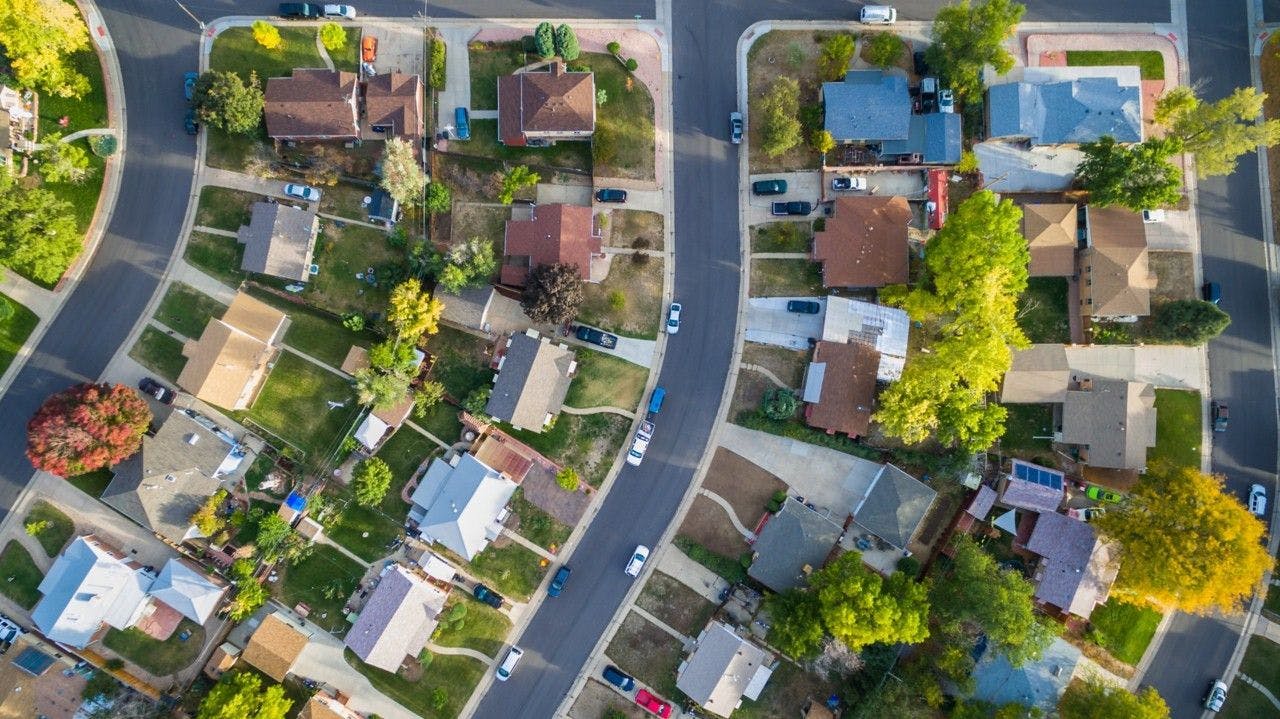
- Our Homes
- About & Testimonials
- Gallery
- Blog


Published on Oct 1, 2023

The average cost of building a home in Saskatoon can range from $150 to $275 per square foot, depending on various factors. Click here to get an accurate estimate based on your needs, neighbourhood, and customized design preferences.
At KW Homes, we understand the significance of overall cost in building your future home. In this article, we will explore various factors that influence the price, strategies to manage building costs, and the available financing options for your new home!
Let's get into it!
Saskatoon offers a diverse range of neighbourhoods, each having its unique charm. However, the cost of land can vary considerably from one area to another. Factors like proximity to schools, amenities, and accessibility can significantly impact land costs.
The condition of the land is an important factor.
While a vacant land lot may look like a steal of a deal, it may need clearing, leveling, existing home demolition, and other work before you can begin construction. Also, land in more rural areas with hilly regions and flood zones may lead to higher foundation costs. All these factors affect construction costs, so be very diligent when selecting your land.
Land on the west side of Saskatoon is generally less expensive in areas such as Kensington or Hampton Village. Compared to the East side neighbourhoods such as Brighton or Aspen Ridge, which are typically more expensive. Always consult with a trusted real estate agent for guidance!
But hey, at least we aren't in British Columbia (the average price of a home is now at $1,000,000!)(Reference) .
Every small detail will affect the construction costs of your new home. The number of bedrooms, the architectural style, layout, square footage, and interior finishes, all affect the total cost to build.
A single-family home with a floor plan of 3,000 square feet will be more expensive than a 2,000 square foot home, that's the general rule!
Yet, it's not always the square footage that dictates the final cost. Even an average size house could cost more than a mansion if you customize it enough.
The more custom built and unique your new home is, the more significant the price tag. Every bit of customization includes a fair share of added costs to your new home's price!
The materials you decide to use in your home have a significant impact on the overall construction cost. In the past few years, the cost of materials has increased due to supply chain issues, demand, and inflation. (Reference)
High-quality finishes, such as hardwood flooring, granite countertops, or luxury lighting all amplify the cost of your home. And while it might be tempting to save money by going for lower-end materials, this could do the opposite.
Cheaper materials are generally worse in quality (than expensive ones), and they may cost less in the beginning. However, you should also consider the costs of maintenance and repairs over time!
Also, think of it from a long-term perspective. What will your home be worth in 20 years? Will the materials you use affect the long-term value of your home?
The same applies to energy-efficient upgrades and appliances. While installing solar panels is expensive at the start, the savings you'll have over time will be substantial.
The bottom line is that investing in quality from the start is always a better option. It'll be more expensive initially, but the value will pay dividends.
Understanding labor costs and finding the right professional for the job is crucial for your custom build. You wouldn't want to invest lots of time and energy only to have mediocre results.
At KW Homes, we build homes that families will cherish for generations to come. We take great pride in building quality homes and are pleased to have been awarded the Consumer Choice Award by Saskatoon & Region Home Builders' Association on 4 occasions.
Contact us today for a free, no-obligation consultation!
Navigating the regulations, and obtaining the necessary building permits is an important step in any home-building project.
Failing to account for a building permit or not complying with local building codes can lead to unexpected expenses and delays. Always reach out to the City of Saskatoon to ensure every step of your building journey is approved.
Also, remember that these legal fees can add up. Even small bills add to your custom home cost and can vary depending on your location.
Managing the costs of building a new house in Saskatoon is crucial to staying within your budget.
Begin by establishing a clear and realistic budget for your project. Take time to sit down and think about your dream and vision.
Take into account all the potential expenses, including the various construction costs, land acquisition, permits, and any other contingencies.
If you're ever unsure, you can always consult with financial experts or mortgage advisors. These experts can help you determine your financing options and ensure your custom built home fits within your budget.
Make a list of your must-have features and prioritize them over less essential elements.
While we all might dream of having a huge pool, a personal tennis court, and even a football stadium in our backyard, you have to be realistic! Extra luxuries can be both unnecessary and way out of budget.
Whereas a detail like having an unfinished basement should be addressed, as it falls into the category of needs.
Include a contingency fund in your budget to account for unexpected expenses or changes in your project. A good rule of thumb is to set aside around 10% of your total budget to provide a safety net.
Always expect the unexpected! Custom built homes sometimes come with surprises and it's best to be prepared for those moments. That's why it's always best to have a fund set aside to cover these unforeseen costs!
When building a new home in Saskatoon there are many financing options available to help you fund your project. In this section, we'll explore financing options so you can decide which is best for you!
A traditional mortgage is one of the most common ways to finance a house. You secure a mortgage loan to cover the cost of both land acquisition and construction.
The higher your down payment, the less your home costs in the long run. Mortgage terms and interest rates may vary, so it's important to shop around for the best deal. Consult with a mortgage advisor to understand your options.
A construction loan is designed specifically for financing the construction phase of your home.
This loan typically has a shorter term and higher interest rates compared to traditional mortgages. It's a fast way to get the monetary support you need to build your custom home.
Construction loans disburse funds in stages as the project progresses. The interest is only paid on the disbursed amount, which helps manage the interest expenses.
If you already own a home with significant equity (value), you may consider a home equity loan or line of credit.
This option allows you to borrow against the equity you've built in your current property to fund your new home's construction.
Be very careful with this option because using your home's equity as collateral naturally carries some risk. Failure to repay the loan could lead to higher costs and even the loss of your existing home itself!
This type of loan combines both the construction and permanent financing phases into one. It starts as a construction loan and then converts into a traditional mortgage once the construction is complete.
Construction-to-permanent loans provide convenience and potential interest savings!
Drawing from your savings or investments is of course another option, which works well if you have enough cash saved to build a house.
Be cautious not to deplete your savings entirely, as having a financial safety net is always a good idea for the uncertainties of life.
It's common to use a combination of financing options to fund your project. This can include a traditional mortgage, construction loan, and personal savings.
Consult with a financial advisor to create a financing strategy that best suits your situation.
Selecting the right financing option depends on your financial circumstances, project timeline, and long-term goals. Careful consideration and consultation with financial professionals will help you make the best financing decisions for your custom home in Saskatoon.
Building your dream home in Saskatoon is an exciting and rewarding journey, but it's also a significant financial endeavour. Understanding the costs and factors is crucial for a successful project.
As you embark on your home-building journey, remember that careful planning, consulting with professionals, and a commitment to stick to your budget and goals are your keys to success.
Building a home is not just about bricks and mortar, it's about creating a space where memories are made, and futures are built.
KW Homes is here to support you every step of the way. Our expertise in building custom homes, combined with our commitment to quality and affordability, makes us an ideal partner for turning your dream home into a reality.
Reach out to us today to start the conversation about your project, and let's build the home you've always envisioned.
Thank you for joining us to explore the average cost to build a home in Saskatoon and best of luck!
Get notified on updates, blogs, announcements, and more!